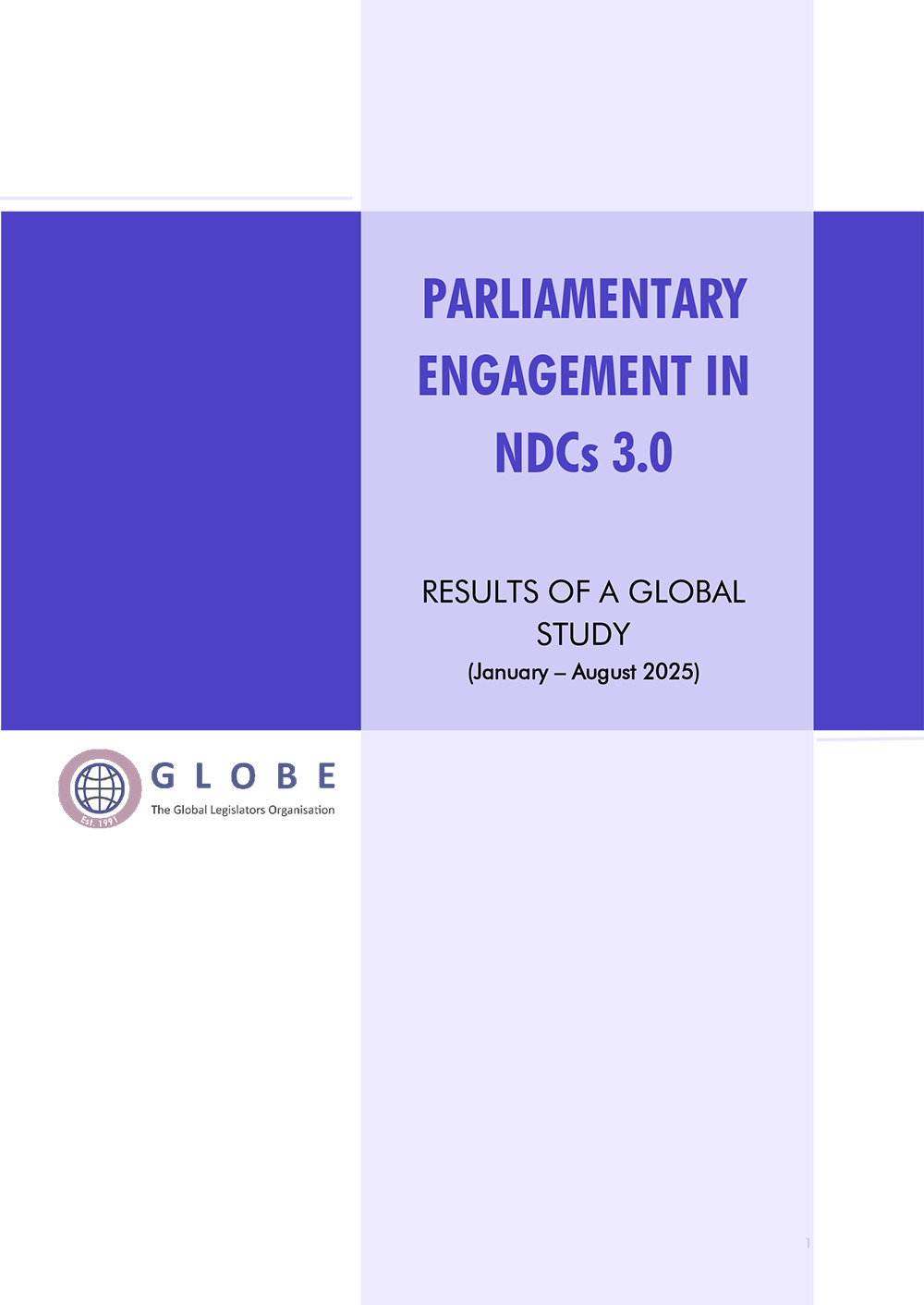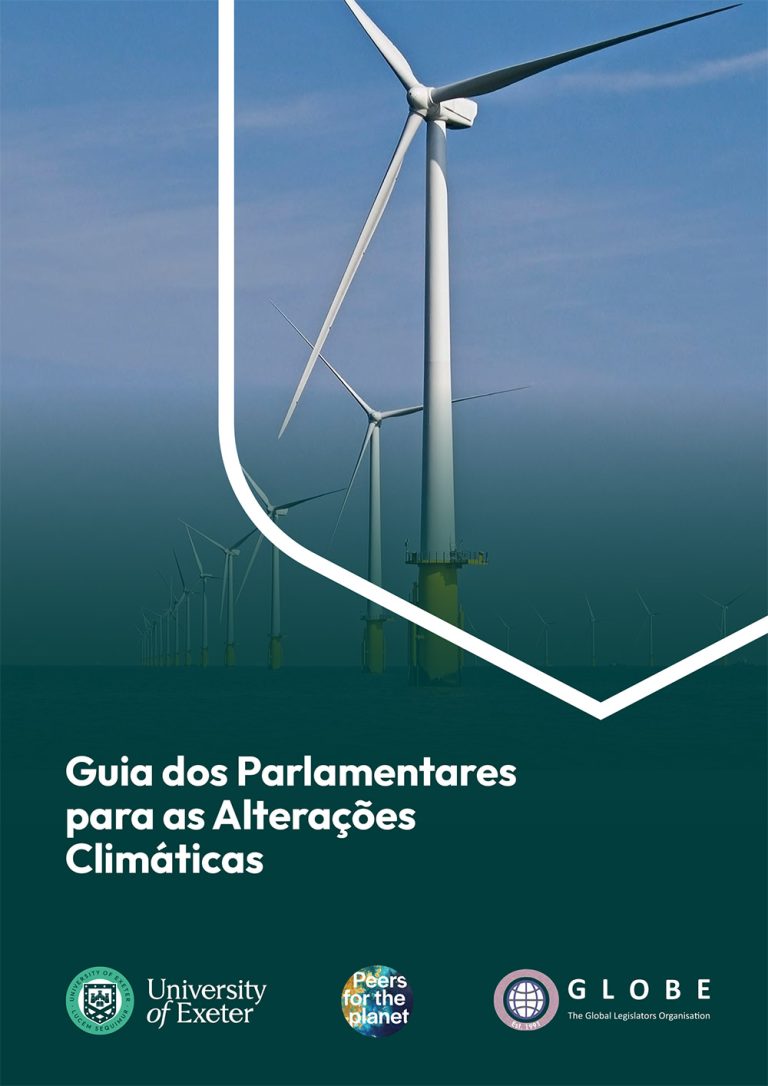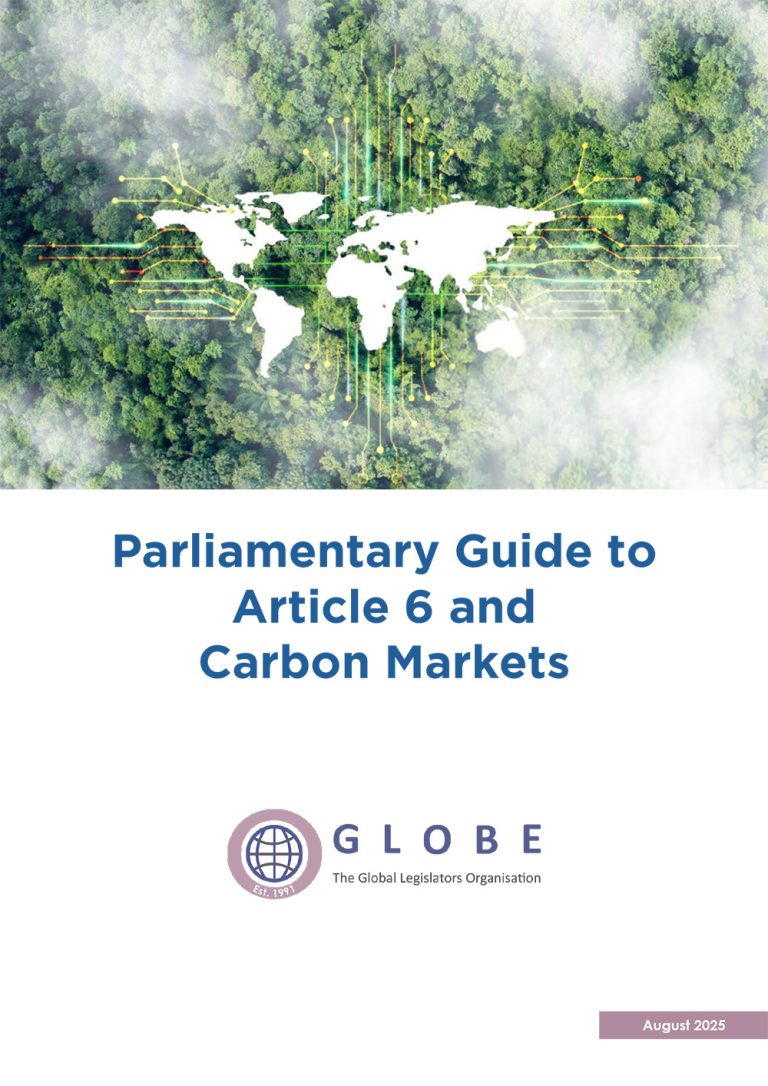Pre-COP30 Parliamentary Forum at Rio Climate Action Week calls for greater legislative engagement in UNFCCC COP process
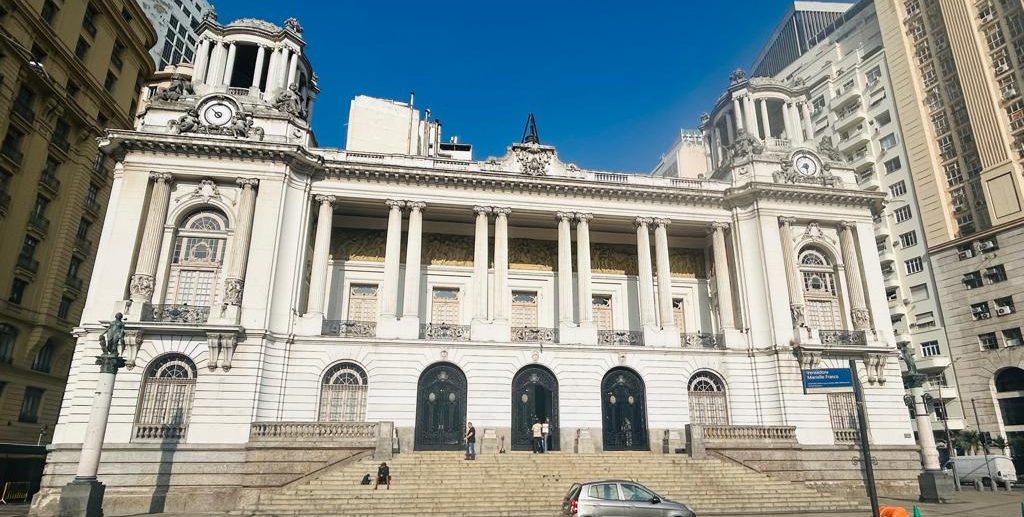
Rio de Janeiro, 27 August 2025 – Strengthening the role of legislators in global climate governance was the central theme of the Pre-COP30 Parliamentary Forum, convened by GLOBE during the inaugural Rio Climate Action Week (RCAW). Hosted by the Legislative Assembly of the City of Rio de Janeiro, the hybrid event gathered parliamentarians, climate experts, scientists and civil society leaders from across the globe to exchange insights and prepare momentum ahead of COP30 in Belém.
Organised by GLOBE Legislators, the UNFCCC Focal Point for Parliamentarians, in partnership with Plataforma CIPÓ, Clima de Política, and OPCC, and hosted by the Camara Rio, the Legislative Assembly of the City of Rio de Janeiro, the Forum underscored the critical role of parliaments in advancing climate action through lawmaking, budgetary oversight and approval, scrutiny of the Executive, and creating consensus for action.
Opening Session
The day began with welcoming remarks from Carlo Caiado, President of the Legislative Assembly of the City of Rio de Janeiro, and Tainá de Paula, Secretary of Environment and Climate at the City of Rio de Janeiro. De Paula reflected on the city’s frontline role in addressing the chronic impacts of climate change, citing how international exchanges through GLOBE had inspired the city to develop a protocol for extreme heat events.
Malini Mehra, CEO of GLOBE Legislators and Co-founder of Rio Climate Action Week, joined the dignitaries in opening the event, noting the historic significance of GLOBE returning to Rio after the organisation’s formation ahead of the Rio Earth Summit in 1992. GLOBE partners OPCC, CIPÓ, and Clima de Política from Brazil helped outline the Forum’s agenda, emphasising the urgency of bringing legislative voices into the heart of the UNFCCC COP and related processes.
A keynote address by Nigar Arpadarai MP, the UNFCCC High-Level Champion for COP29 and first member of parliament in this role, joined virtually from Baku, Azerbaijan, to reinforce the importance of parliamentarians as drivers of national ambition and implementation.
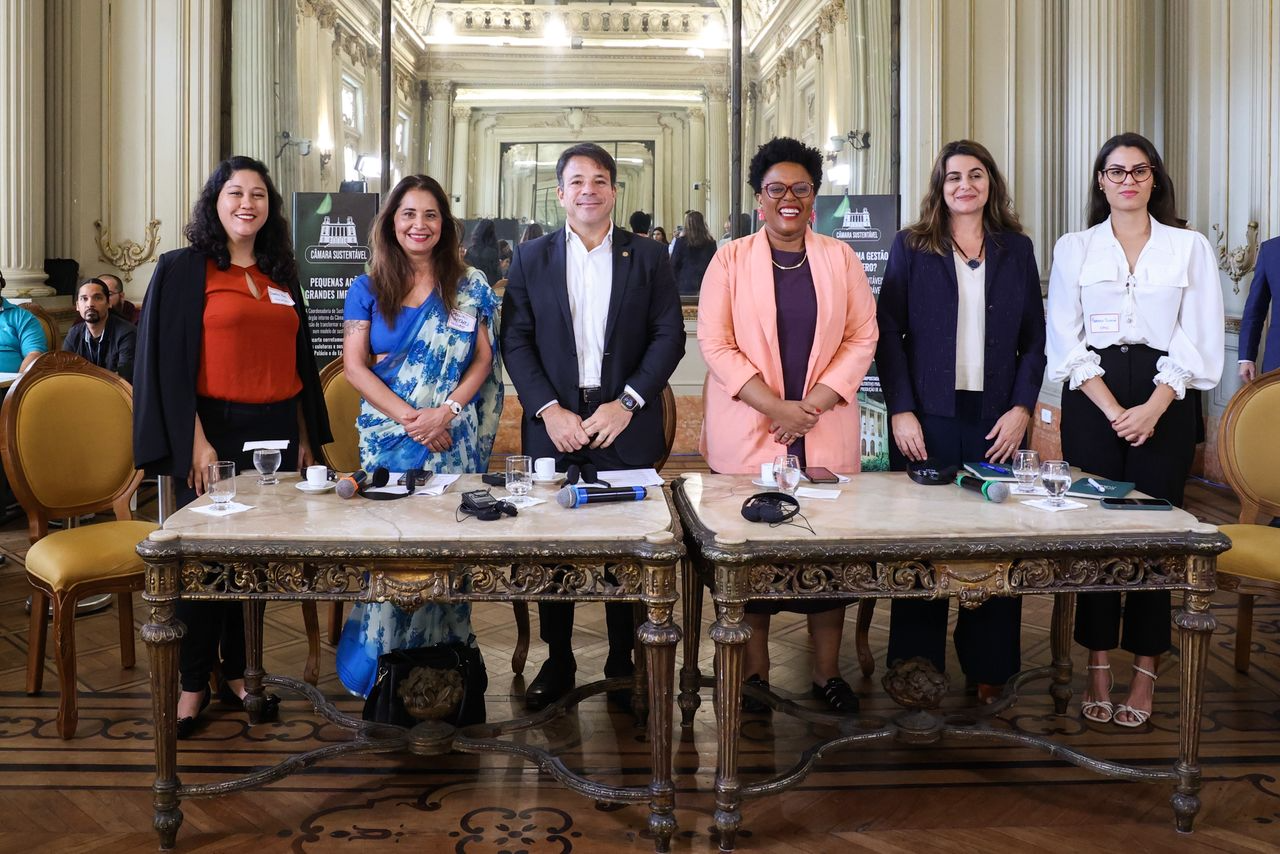
Report Launch 1 – Parliamentary Engagement with NDCs 3.0
The first major highlight was the launch of GLOBE’s global survey on parliamentary engagement with NDCs 3.0. Introduced by GLOBE’s Focal Point Administrator Nnaemeka Oruh, the study revealed that parliaments remain an underutilised resource in climate policy. The report shows that while NDCs 3.0 will define national climate ambition through 2035, parliaments have been largely disengaged from the process, lacking awareness, capacity and training to shape them. Through the study, GLOBE aimed to provide objective data to the UNFCCC, COP30 Presidency, NDC Partnership, governments, parliaments and stakeholders to bring greater attention to this situation and improve it.
Pablo Vieira, Global Director of the NDC Partnership, responded first to the study, provided a cutting edge update on the status of NDCs 3.0 submission, noting that 29 had been submitted so far, with 180 expected by the end of September. Senator Dessima Williams, President of Grenada’s Senate, spoke next to underline the importance of parliamentary engagement, but noted that small states in particular need more support: “Countries like ours would not be able to engage with NDCs without partners. We need to get more involved in the agenda.”
Strengthening the Parliamentary Voice in the UNFCCC
The second session focused on efforts to formalise a parliamentary constituency at the UNFCCC, enabling elected representatives to hold governments accountable within the COP process. Lawmakers from Brazil, Canada, the UK, South Africa, and Azerbaijan shared perspectives on why their inclusion is vital.
Mehra argued that legislators remain insufficiently engaged: “They should be playing a more effective role in driving climate action and holding governments to account.”
Report Launch 2 – Parliamentary Guide on Climate Change (Portuguese Edition)
The Forum also celebrated the release of the Portuguese edition of the Parliamentary Guide on Climate Change, developed by the University of Exeter and Peers for the Planet, in partnership with GLOBE who translated the publication into Portuguese for the Lusophone parliamentary constituency. The trio had collaborated last year, when GLOBE had translated the British publication in Azerbaijani and launched at Baku Climate Action Week 2024.
Speakers at the launch of this new Portuguese version of the report at Rio Climate Action Week, included Stuart Brocklehurst, Deputy Vice-Chancellor of the University of Exeter, Alex Godoy, member of Chile’s Committee on Climate Science, and Gabriella Seiler, Strategic Consultant at Brazil’s Serapilheira Institute, and Carlos Milani (UERJ)who all highlighted the need for closer collaboration between science, policymakers and parliaments to inform effective policymaking on climate change, improve climate laws and oversight.
Expanding Parliamentary Diplomacy
Later sessions explored how parliaments can promote international cooperation on climate. A diverse panel of Brazilian councillors and legislators from Chile and beyond discussed initiatives to expand parliamentary diplomacy in global climate governance.
Report Launch 3 – Parliamentary Guide on Article 6 and Carbon Markets
The afternoon saw the unveiling of a new GLOBE publication, the Parliamentary Guide on Article 6 and Carbon Markets, authored by Kalyani Inampudi, with a response from GLOBE Board Member, Samuel Onuigbo, former distinguished member of Nigeria’s Legislative Assembly and sponsor of Nigeria’s landmark Climate Change Act of 2021.
Best Practices in Climate Legislation
Brazilian deputies from São Paulo, Rio Grande do Sul, and Rio de Janeiro shared case studies of social participation and legislative innovation in advancing climate solutions. The discussion showcased how climate laws are being adapted across regions, with strong emphasis on local realities and citizen engagement.
Closing Call to Action
The Forum concluded with the adoption of a Parliamentary Call to Action for COP30, a communiqué to be submitted to the COP30 Presidency. This declaration reinforces parliamentarians’ shared responsibility to strengthen NDCs 3.0, regulate carbon markets, advance climate finance, and bridge science and policy.
With three major report launches, high-level panels, and contributions from across continents, the Pre-COP30 Parliamentary Forum in Rio de Janeiro marked a milestone in elevating legislative engagement ahead of COP30.
The Forum drew considerable press attention in Brazil (links provided below) and confirmed that parliamentarians are indispensable actors in shaping ambitious climate pathways and ensuring governments deliver on their promises.
More Like This
• Pre-COP30 Parliamentary Forum
•Roundtable on NDCs and Parliamentary Engagement. Berlin, 10 June, 2025
• Berlin Roundtable Underscores Parliamentary Role in NDCs
• GLOBE Climate Laws Briefing Notes. June, 2025
• At COP29 GLOBE Legislators, WWF and ClientEarth Call for Legally-anchored NDCs 3.0
• Global Survey of Parliamentary Engagement in the First Global Stocktake. GLOBE & WFD, 2024

